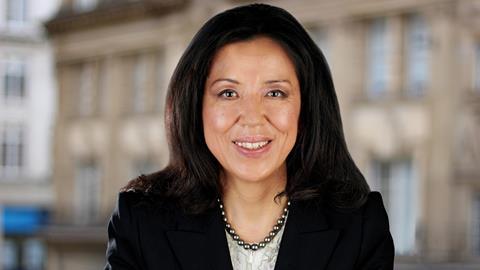Partner at gunnercooke
I’ve always wanted to be a lawyer. Since a young age I’ve found international relationships and business of interest, so international law was an easy choice. This was also the reason why I was part of the team dealing with the Hong Kong handover for over 10 years.
I studied at Peking University. This included 30 subjects across various disciplines including politics, history, economics, art and technology in addition to law. This gave me a broad base with multi-dimensional exposure to build on throughout my career.
Businesses need much more than a lawyer now. They need a trusted adviser, someone who understands their market, their challenges, their competitors, the ins and outs of their business and even the people within their organisations. So a broad education, background and experience are important.
I’ve also enjoyed work as a research fellow of China Legal Research Centre. I focused on cross-border issues including looking at the role of the chairman of the board of directors and independent non-executive directors. Specifically, I researched the role these people play in assisting and guiding a board of directors, as well as how businesses can deal with the differences in the expectations and understanding of each other’s roles. There are often interesting issues faced by multinational organisations who want to operate successfully on the international stage. This work really helped me in my legal advice as it focused on the commercial side of business, the dynamics in organisations and on overseas expansion. It ties in closely to my day-to-day corporate work.
'Continued lifelong learning throughout your career, no matter what stage you are at, is crucial to become an even better lawyer. This is why my non-legal training has been so important'
My EMBA [Executive Master of Business Administration] adventure was something I was determined to do for my own personal development. I’ve always liked to learn new things, whether that be new theories, new technologies, or broadening my understanding of the commercial side of business. Continued lifelong learning throughout your career, no matter what stage you are at, is crucial to become an even better lawyer. This is why my non-legal training has been so important.
Cross-border work is incredibly interesting. There are many considerations to think about when assisting UK and Chinese clients. Mainly, there’s the difference in expectations, assumptions and perceived understanding of clients on both sides arising from the fundamental differences in the two legal systems. It’s important for cross-border lawyers to know regulations, processes and laws in each jurisdiction to stay compliant and make the process run as smoothly as possible.
Concepts commonly known in English common law are unheard of in the Chinese civil law system, making it complex when working with parties across both jurisdictions. Key concepts such as beneficial interest v legal interest in asset ownership impact on the buying and selling process of shares and properties. Other differences include the process of discovery in litigation; client attorney privilege; and the concept of without prejudice. There can also be cultural and language barriers, therefore it’s important to have an understanding of the client’s culture and the key differences in the business environment and the industry, as well as just legal differences.
Travel to China has been on hold so digital communication has been a huge help. Before the pandemic I travelled to China two to three times a year both for work and personal reasons but I haven’t been able to travel for a couple of years now. However, the improvements in virtual communication and video conferencing over the past 18 months have minimised the impact of not being able to meet face to face with clients.
We have always been set up for remote working at gunnercooke but the adoption of technology worldwide has made cross-border work with international teams and clients even easier. We are seeing signs that the world is heading back to normal. I’m expecting international connections to thrive in this new digital world. But I am of course looking forward to my next visit to China.
I was honoured to have led my alma mater (Cambridge University) in setting up a research centre overseas in China. This successful government and academia joint venture was incredibly interesting, close to my heart and an example of the strong relations we are building between Asia and the UK.
































No comments yet